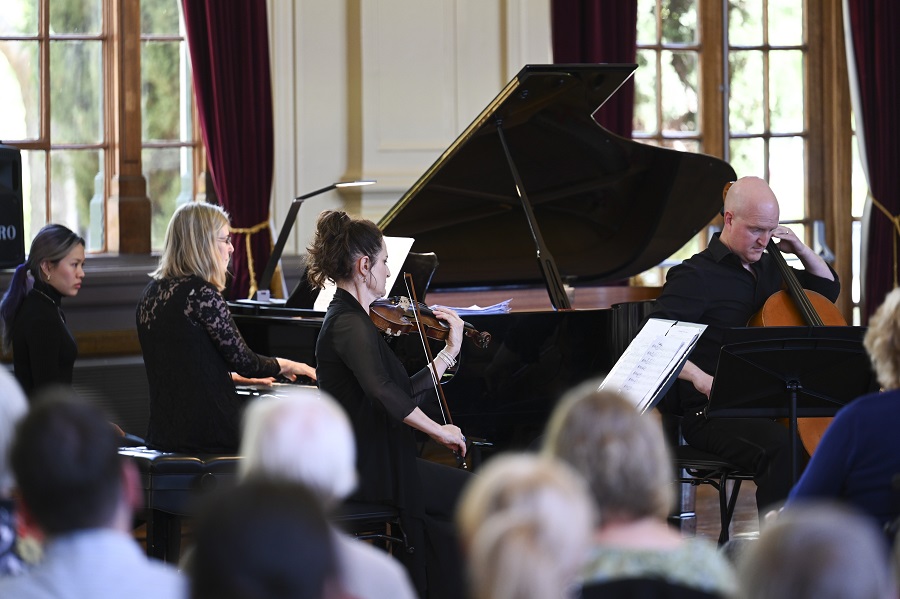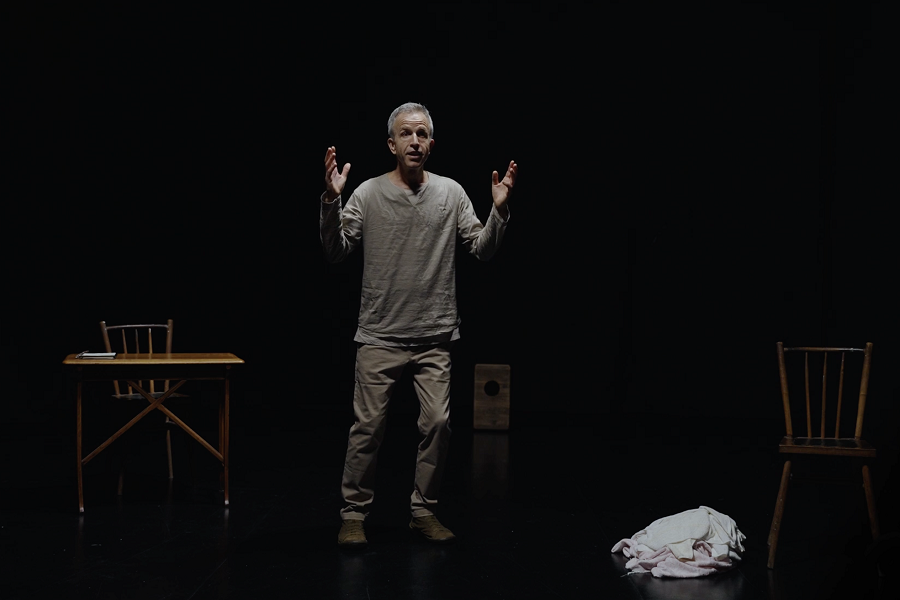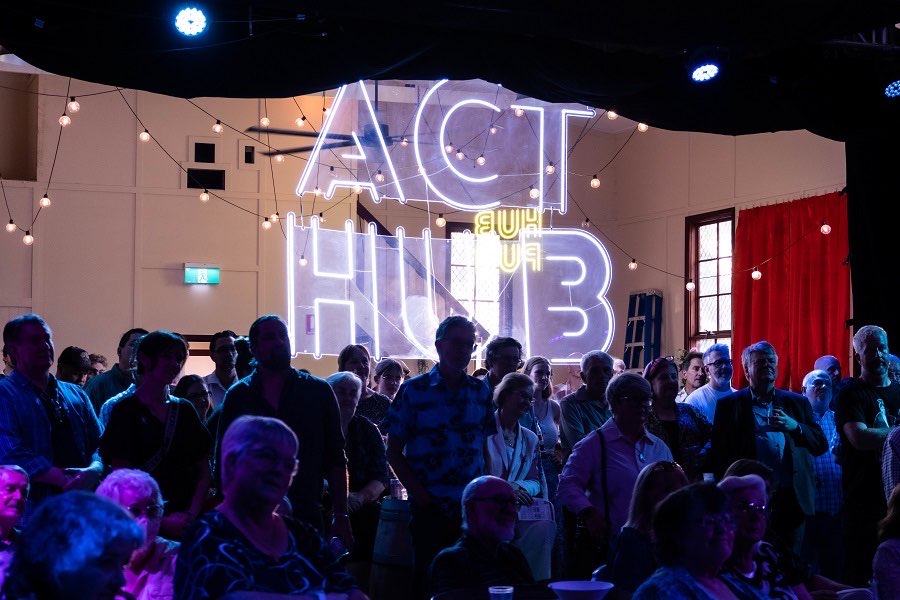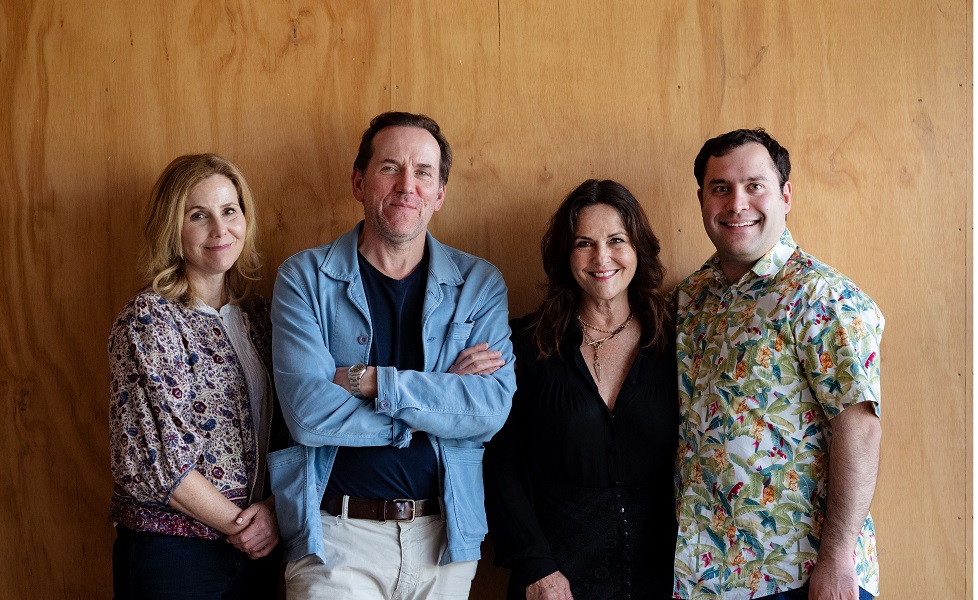
Music / Affinities: CSO Chamber Classics. At Albert Hall, October 27. Reviewed by SARAH BYRNE.
Affinities was the last in this year’s program of Chamber Classics from the Canberra Symphony Orchestra, this time for a spare but rich ensemble of violin (Kirsten Williams), cello (Patrick Suthers) and piano (Susanne Powell).
The title is reflective of the intention to explore the connections between composers – in particular, those between Dvorak and his protege and son-in-law Josef Suk. I’m not sure how well the program met that brief – starting with one brief piece from Suk and then several other short pieces from Dvorak before the main event, which was actually the Mendelssohn Piano Trio No 1 in D minor. I do know it amply met the brief for what Michael Flanders might have described as “a jolly pleasing noise”.
Suk is not a composer with whom I am especially familiar and I’d have loved a more substantial piece than the Elegy, and more context to the relationship between his work and Dvorak’s. This was an enjoyable amuse bouche, but not very nourishing of itself. A mournful violin emerged from slightly blurry first few bars, before allowing the cello to take up the melody, the ensemble becoming emotional before ending on a peaceful theme.
We then moved on to selections from Dvorak’s Romantic Pieces, slow and (as advertised) indeed romantic, for violin and piano, with some beautiful work from Williams, and his Songs My Mother Taught Me (written for his favourite tenor and transcribed for the trio). The piano appeared to struggle just a very tiny bit on occasions.
Nobody does greenery better than Dvorak (fight me), so it was a joy to hear his Silent Woods, a character piece for cello and piano, although originally written for two pianos, and then for cello and orchestra. Suthers’ work here was beautiful, rich and nuanced through the whole range of his instrument’s capacity, and the whole lush and lyrical piece evoking the Czechoslovakian forest.
The second half of the one-hour program was devoted to Mendelssohn’s Piano Trio No 1 in D minor, a gorgeous thing that critics said on debut would bring joy to future generations. They did not overstate it.
The deft piano runs show the influence of Chopin (again, despite an occasional muddiness in delivery), and the first movement is almost a mini-suite in itself. The molto allegro, in an impassioned ¾, develops into a cheerful, almost music-hall melody, with a climbing call and response, and then to a waltz, generating applause of the type usually withheld until the end of the whole piece.
The piano took most of the load in the second movement (andante), a deeply soothing lullaby, before the scherzo – described as “leggiero e vivace” and which delivered in spaces, even unto a slightly comic ending.
The fourth movement finale was thoughtful and colourful and, harking back to the Affinities theme, was a lovely demonstration of these musicians actively working together, with some charming baroquery from the cello before a dynamic cadenza.
This was a gorgeous program of music and despite some challenges (there was much re-tuning between pieces), Dvorak and Mendelssohn are never not enjoyable. Suk I will need to study further, but this concert has encouraged me to do so.
Who can be trusted?
In a world of spin and confusion, there’s never been a more important time to support independent journalism in Canberra.
If you trust our work online and want to enforce the power of independent voices, I invite you to make a small contribution.
Every dollar of support is invested back into our journalism to help keep citynews.com.au strong and free.
Thank you,
Ian Meikle, editor




Leave a Reply